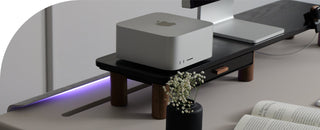We often associate consistency with repetition, and repetition with daily practice. But some of the most valuable habits for our productivity and well-being aren’t daily—they’re weekly, biweekly, or even monthly. And that’s okay. The key is intention, not frequency.
The Danger of Inverted Momentum
When we don’t do something for a while, it can feel harder to return to it—not just because we’ve broken the streak, but because we start building momentum in the wrong direction. This is what I call "inverted momentum": every day you don’t write, or don’t organize your space, or don’t review your goals, the inertia grows. You start identifying as someone who doesn’t do that thing.
But momentum works both ways. The moment you return, even once, the balance begins to tip. So the goal isn’t to do it daily—it’s to never let the gap grow too wide.
How to Make Non-Daily Habits Work for You
-
Tie them to a trigger, not a time
Instead of saying "I’ll do this every Thursday," try: "I’ll do this after I plan my week." Linking the habit to a flexible but predictable event keeps it anchored. -
Use a habit tracker—but redefine success
Traditional habit trackers can punish you with empty boxes. Instead, build one that asks, "Did I do this within the past 7 days?" or "Did I hit my target this month?" -
Let the calendar hold the habit
Offload the memory burden. Set recurring calendar events with notes, context, or links so your brain doesn’t need to remember when or how—just what. -
Celebrate the return
If it’s been a while, don't berate yourself. Celebrate the return. A habit resumed is more impressive than one maintained out of inertia.
Examples of Powerful Non-Daily Habits
-
Weekly goal reviews
-
Monthly workspace resets
-
Biweekly content planning sessions
-
Quarterly personal audits
-
Even things like unplugged weekends or email detox days
These aren’t less valuable because they’re less frequent. In fact, their infrequency can give them power. They disrupt. They reset. They give you perspective.
So stop worrying if your habit isn’t daily. Focus on whether it’s intentional, valuable, and sustainable. That’s what makes it a real habit—not the number of checkmarks in a row.
Want a desk that helps you reset every week?
→ Explore beflo accessories



